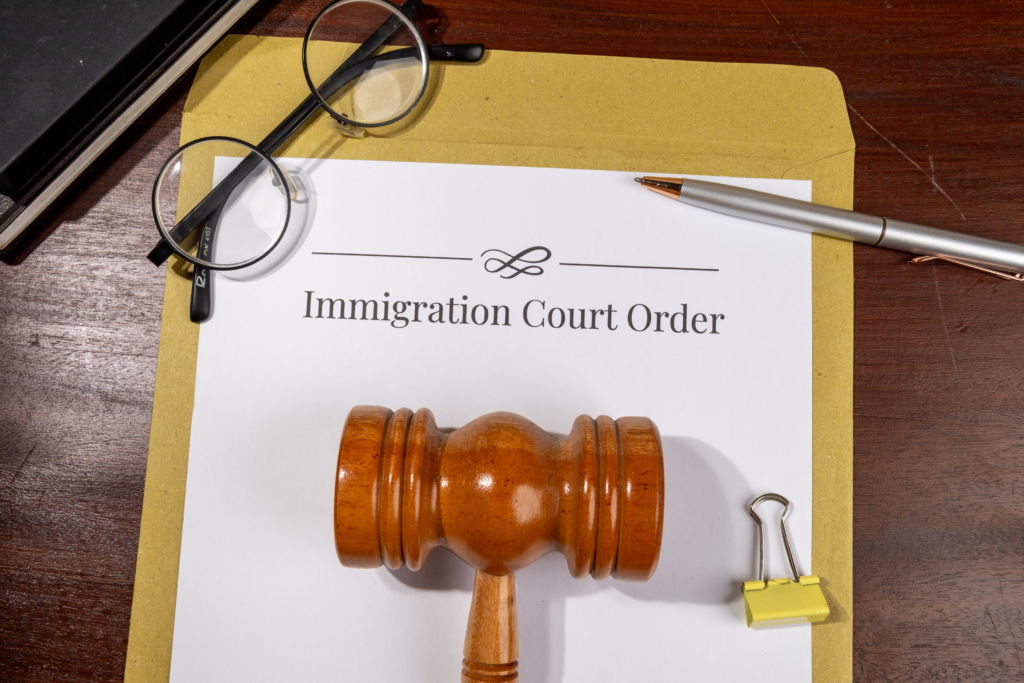Updated: July 2, 2025
Hiring internationally is not new for Canadian businesses: it provides access to specialized skillset that is not common in Canada but most importantly it allows to fill immediate labour gaps that many Canadian businesses struggle with.
Hiring foreign workers also addresses the high turnover rates – the work visas they get, will be specific to the Canadian business that hired and sponsored them.
To ensure your business also benefits from hiring foreign workers, we prepared this guide in easy-to-understand pieces for you to learn how to hire foreign workers and propel your business forward.
How to Bring International Employees to Canada in 2024
The Canadian government offers numerous immigration programs designed for hiring foreign workers. Every program has its differences and is well-suited for the type of foreign worker it was intended for. Below you will find a summary of options for hiring foreign workers in Canada, and later in the article, we will discuss each option in more depth:
Labour Market Impact Assessment (LMIA) Work Permits – This is a 2-step process: first, you must obtain an LMIA approval, second, your worker must apply for and obtain a Canadian work permit. Foreign workers on LMIA work permits are generally allowed to work in Canada for up to 3 years. You can either hire high-wage LMIA workers (You can review our previous case handling high-wage LMIA workers for a construction company in Canada) or low-wage LMIA workers.
LMIA-Exempt Work Permits – If your foreign worker’s job description and country of citizenship fall within the governmental exemption, you may be able to avoid the entire LMIA portion. Your business will benefit from undergoing a simplified process of hiring international employees who can work in Canada for up to 36 months.
Working Without a Work Permit – Not all foreign workers need a work permit to work in Canada. Depending on their occupation, the services they provide, the duration of the contract or assignment for work in Canada, some foreign workers are allowed to work without LMIA and without a work permit.
Steps for Bringing Foreign Workers to Your Business In Canada
If you are ready to hire skilled foreign talent to Canada, diversify your team, and add a competitive edge to your business, you can expect to follow these 4 important steps throughout the entire process:
Step 1: Do you need an LMIA?
Most Canadian businesses need an LMIA before they can hire a foreign worker, unless they fall under an exemption. If the business is required to have an LMIA, the next step would be to identify which LMIA the business will need.
If the business is exempted from applying for LMIA, then the next step is to register on IRCC Employer Portal and digitally submit details of the offer online.
Step 2: Submit an LMIA or an LMIA-exempt Offer of Employment
Depending on the type of LMIA that you need, you may be able to apply for it immediately or you may need to actively recruit for the position within Canada for 4 weeks before you can apply. The processing times will also vary – it can go from 2 weeks to 3~4 months, all depending on the type of LMIA.
LMIA-exempt offer of employment can be submitted as soon as all information is entered. Once submitted, the system will generate a unique code that must be shared with the foreign worker to apply for a work visa.
In case if the job falls under a special category that doesn’t require an LMIA nor a work permit, the foreign worker must have valid travel authorization to Canada: either an eTA (Electronic Travel Authorization) or a TRV (Temporary Resident Visa).
Step 3: Applying for a Work Permit
The workers can apply for work permit after LMIA application is approved, or online offer of employment is submitted in the LMIA-exempt scenario.
The processing time of a work permit will depend on 3 main factors such as:
- the foreign worker’s country of citizenship and/or residence
- the type of LMIA that was approved
- in case of LMIA-exempt category, the title (NOC code) of the offer
Most times the foreign workers are able to bring their family with them to Canada, which will allow their spouses and children of working age to contribute to the Canadian labour market as well.
On many occasions, employers and employees collaborate with an immigration lawyer to streamline the process and ensure that error-free and policy-compliant immigration application is submitted.
Step 4: Employer Compliance
Once your foreign worker arrives to Canada and starts working for your business, you need to be aware of these essential items:
- Maintain the same employment conditions per LMIA and job offer letter (meaning, don’t pay them a lower salary that was not agreed on, nor ask them to perform duties that are not relevant to their role)
- Keep records of paperwork, documents, forms, etc. for a period of 6 years
- Inform ESDC or IRCC in case of any changes to the employment of the foreign worker
- Execute commitments that were agreed on with ESDC for some LMIA applications
- Ensure the foreign workers are always paid a median hourly rate
If your business is ever found non-compliant, the consequences can range from a warning, a monetary penalty, to suspension and inability to hire foreign workers in the future.
LMIA Work Permits in Detail
LMIA is short for Labour Market Impact Assessment – it is a mandatory step that Canadian businesses need to complete before the foreign worker can apply for a work visa to Canada, unless the employment of the foreign worker will fall under an LMIA-exemption. This option is described further down below.
In summary, LMIA protects the Canadian labour market to ensure that priority is always given to Canadian citizens and permanent residents first. If the business can’t find a worker internally from inside Canada, only then can they proceed with an LMIA application.
The LMIA process can be separated into the following milestones:
- Which type of LMIA do you need, and does it require recruitment efforts?
- Initiate 4-week recruitment efforts if required
- Collect documents, complete the application form and submit
- Interview meeting with the ESDC officer
- High Wage
- For professionals from any industry who are being paid above the provincial median wage
- Application processing times: 2~3 months after LMIA application submission
- Low Wage
- For professionals from any industry who are being paid below the provincial median wage
- Application processing times: 2~3 months after LMIA application submission
- Global Talent Stream
- For IT, engineering, or highly unique and specialized talent
- Application processing times: 2~3 weeks after LMIA application submission
- Agricultural Stream
- For professionals with an agricultural background
- Application processing times: 3~4 weeks after LMIA application submission
- Permanent Residence Stream
- Used to support the foreign worker's permanent residence application in the Express Entry system
- Application processing times: 2~4 months after LMIA application submission
- Your job advertisement must include all mandatory information per ESDC requirement
- It must be posted on the Government of Canada’s Job Bank platform
- It also must be posted on 2~4 other alternative sources, which could be an online website, a newspaper ad, a physical post on a job board, etc.
- In case of Low Wage LMIA, alternative sources must target underrepresented groups
- In case of High Wage LMIA, alternative sources must target professionals from similar industries with similar backgrounds
- Job Match must be completed on Job Bank within 30 days
- It's a matching service that ranks applicants based on their professional compatibility with the job posting
- Applicants with 4 stars and above must be invited to apply in context of a High Wage LMIA
- Applicants with 2 stars and above must be invited to apply in context of a Low Wage LMIA
- It's a matching service that ranks applicants based on their professional compatibility with the job posting
- Advertisements must run for 4 weeks before LMIA application can be submitted while advertisement on Job Bank must run until the LMIA decision letter is issued
- Proof of recruitment efforts (advertisement copies and recruitment summary) as applicable based on the LMIA type.
- Business legitimacy documents such as (as preferred by ESDC):
- T2 Schedule 100 and Schedule 125
- Most recent PD7A slip
- Most recent T4 Summary of Renumeration Paid
- Business license
- title, duties, salary and salary payout schedules
- working schedules and hours
- primary location of work
- benefits
- paid time off
LMIA-Exempt Work Permits Explained
Sometimes, Canadian businesses can avoid the entire LMIA if their foreign worker and/or the details of their job offer match one of the LMIA-exempt categories. In this case, the foreign worker can apply directly for a work permit and you won’t need to go through the entire LMIA process.
However, you must submit details of the job offer online through the IRCC Employer Portal – the system will issue a unique offer of employment code starting with “A” that will need to be shared with the foreign worker for their work permit application.
Below is a list of some of the most popular pathways under LMIA-exempt route for foreign workers.
- USA and Mexico using the CUSMA, the new North American Free Trade Agreement (NAFTA);
- Chile using the Canada-Chile Free Trade Agreement (CCFTA);
- Peru using the Canada-Peru Free Trade Agreement (CPFTA);
- Colombia using the Canada-Colombia Free Trade Agreement (CCFTA);
- South Korea using the Canada-Korea Free Trade Agreement (CKFTA);
- Nationals of EU countries: Austria, Belgium, Bulgaria, Croatia, Republic of Cyprus, Czech Republic, Denmark, Estonia, Finland, France, Germany, Greece, Hungary, Ireland, Italy, Latvia, Lithuania, Luxembourg, Malta, Netherlands, Poland, Portugal, Romania, Slovakia, Slovenia, Spain, Sweden using the Comprehensive Economic and Trade Agreement (CETA);
- United Kingdom using the Agreement on Trade Continuity between Canada and the United Kingdom of Great Britain and Northern Ireland (CUKTCA);
- Panama using the Canada-Panama Free Trade Agreement;
- Australia, New Zealand, and Japan using the Comprehensive and Progressive Agreement for Trans-Pacific Partnership (CPTPP)
- A national of any WTO-member country for specific occupations using the General Agreement on Trade in Services (GATS)
- Andorra, Australia, Austria, Belgium, Chile, Costa Rica, Croatia, Czech Republic, Denmark, Estonia, Finland, France, Germany, Greece, Hong Kong, Iceland, Ireland, Italy, Japan, Latvia, Lithuania, Luxembourg, Netherlands, New Zealand, Norway, Poland, Portugal, San Marino, Slovakia, Slovenia, South Korea, Spain, Sweden, Switzerland, Taiwan, United Kingdom.
Working Without A Work Permit Explained
In several situations, your foreign worker can work in Canada without a Work Permit nor LMIA. This generally applies for short-term assignments and if they are coming in the following scenarios:
- Business Visitors
- Athletes and team members
- Aviation accident or incident inspector
- Civil aviation inspector
- Clergy
- Convention/conference organizers
- Crew (Air, Highway, Maritime, Rail)
- Emergency service providers
- Examiners and evaluators
- Expert witnesses or investigators
- Foreign government officers
- Foreign representatives and family members of foreign representatives
- Health care students
- Judges, referees and similar officials
- Military personnel
- News reporters, media crews
- Performing artists
- Public speakers
- Religious leaders
However, depending on the country of origin, the worker may still require an entry visa to Canada.
Business Visitors
A business visitor visa is a good option for businessmen who want to explore business opportunities in Canada or for highly skilled professionals that are coming to Canada to facilitate exchange of goods, services, or knowledge. Activities that business visitors may conduct in Canada without a work permit:
- Buying Canadian goods or services for a foreign business or government
- Exploring and visiting businesses for sale with a business broker
- Taking orders for goods or services from Canadian business clients
- Attending meetings, conferences, conventions or trade fairs
- Giving after-sales service as part of a warranty or sales agreement
- Being trained by a Canadian parent company that you work for outside Canada
- Training employees of a Canadian branch of a foreign company
- Being trained by a Canadian company that has sold you equipment or services
In other words, business visitors are individuals that come to Canada for international business activities without directly entering the Canadian labour market – meaning they are not going to earn salary in Canada during their visit. The applicants under this category must show that:
- The primary source of the worker’s compensation will remain outside of Canada
- The principal place of employment is located outside of Canada
It is important to note that while business visitors will not need a work permit, most business visitors will require a visa to enter Canada. Contact us to understand what kind of visa you will need for this purpose.
Sobirovs Law Firm Is Here To Help
Determining which criteria your company needs to meet to hire foreign workers is challenging and can be daunting when you have to run your business. A half dozen different types of work permits have differing requirements. Unless your company hires a specific category of individuals, you should plan on going through the LMIA process until other legal advice is received.
Hiring foreign workers for your company in Canada can be complex and nuanced. Sobirovs Law Firm is here to help with years of experience across all aspects of this business. We can help you decide which options are best for your business and take you through the process with minimal hassles. Please book a consultation with us to learn more about your options.
The contents of this page should not be used as legal advice. Please seek assistance from a registered attorney if you are considering hiring foreign workers.
Frequently Asked Questions About International Recruitment
Below, you will find answers to the most commonly asked questions:
- Through the LMIA process, where companies must receive approval from the ESDC before the foreign worker can apply for a work permit and work for your company.
- LMIA-exempt route, which allows the foreign worker to apply for a work permit directly without needing an LMIA.
| LMIA and Work Permit | No LMIA – Work Permit Only | No LMIA, No Work Permit |
|---|---|---|
| Most jobs in Canada require LMIA | Intra-company transferees | Business visitors |
| High-wage workers | Entrepreneurs and self-employed individuals | Athletes and team members |
| Low-wage workers | Highly skilled professionals | Aviation accident or incident inspector |
| Occupations in high demand | Citizens of the USA, Mexico, Chile, Peru, South Korea, Columbia, Panama, Australia, Singapore, New Zealand | Civil aviation inspector |
| Citizens of most of the European Union countries | Clergy | |
| French-speaking foreign workers | Convention/conference organizers | |
| Religious workers | Crew (air, highway, maritime, rail) | |
| Academics | Emergency service providers | |
| Examiners and evaluators | ||
| Expert witnesses or investigators | ||
| Foreign government officers | ||
| Foreign representatives and family members of foreign representatives | ||
| Health care students | ||
| Judges, referees and similar officials | ||
| Military personnel | ||
| News reporters, media crews | ||
| Performing artists | ||
| Public speakers | ||
| Religious leaders (not to be confused with Religious workers) |















